Virgil van Dijk has found himself facing unrelenting criticism from his home country over the years, and here Joe Baker unpacks his curious relationship with the Netherlands.
“In the dressing room he is good, football tactically and technically, not…”
“He was selected for the World Team of the Year. He thinks he’s better than the rest.”
“It is actually very strange that such a very good player does so little for the Dutch national team in the build-up.”
The above is just a selection of quotes from two of the most famous names from Dutch footballing history, Marco van Basten and Ruud Gullit, broadcast on TV within the last couple of years.
You would think they were discussing a young developing player or a senior pro whose best years are long behind them. Yet they’re not. They’re sticking the metaphorical boot with relish into the captain of the Netherlands, Virgil van Dijk.

Yes, don’t adjust your screen settings or check what was in your last coffee [insert beverage of choice]. That is the same Van Dijk who is a Premier League, Champions League, FA Cup, League Cup, Super Cup and Club World Cup winner.
The one with almost 300 appearances for Liverpool and 77 caps for his country, 59 as captain. The one who once was runner-up for the Ballon d’Or and went a whole season without being dribbled past.
The one widely viewed – and not just by Liverpool fans and pundits – as one of the best centre-backs of his generation who will be remembered as one of the finest defenders to ever grace the English game.
We know that bad takes from pundits eager to make some noise can happen. Yet such strongly held perspectives on Van Dijk just seem too far removed from the general consensus amongst the wider football public. As if a renowned film critic has just told you that The Godfather is in fact a load of rubbish.
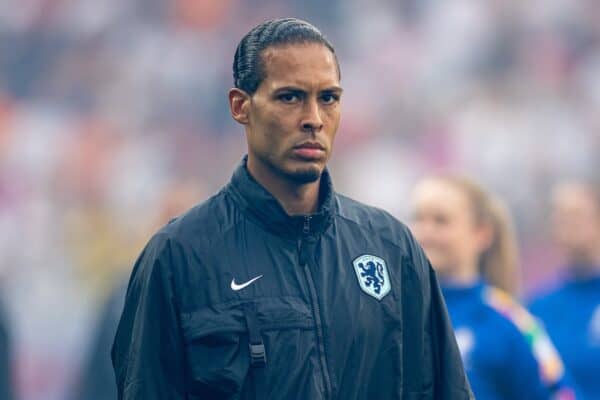
However, here is the thing. From a near half-decade of living in the Netherlands, I’ve come to realise that this perception of Van Dijk is not simply held by famous ex-pros sitting in matchday studios. It is far more widespread than we might think.
And, following his sending off in his last Oranje appearance, the Van Dijk questions have sprouted their heads again ahead of the next round of international fixtures.
So, why is it that many in his homeland have such a different view of Van Dijk compared to the rest of us?
Dutch concept of a centre-back
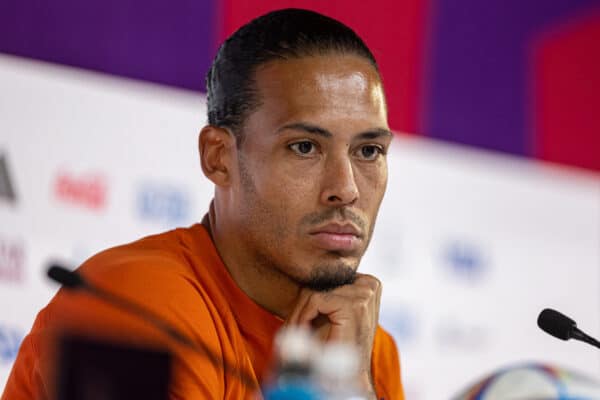
If you were to ask a Dutch football fan to go to a lab and create their ideal international centre-back, he probably would not actually be Virgil van Dijk.
Yes, the man from Groningen naturally has many of the required traditional characteristics, such as his power in the air, reading of the game and strength in the tackle. However, several of the elements that have made Van Dijk world-class – and define his way of playing the role – are not appreciated in the same way by those from his homeland.
One of the quotes above relates to Van Dijk’s passing from the back. Surely you can’t criticise him for his passing when he is so confident and reliable on the ball? Wrong.
The issue with having had historically high-quality progressive centre halves is that all current ones are expected to play the same way. If you are not doing your best imitation of Ronald Koeman (the former centre-back, not the current manager), then you are not doing the role justice.
When it comes to ball retention and playing it between the lines for midfielders to pick up – from Alex McAllister to Frenkie de Jong – Van Dijk is excellent. Yet the Dutch expect their centre-backs to be the best passers on the pitch, dictating everything and kick-starting attacks.
It’s one of the reasons why the brilliant Frank Rijkaard, predominately a central midfielder, played at the back when the Netherlands won Euro 1988.
Furthermore, over the years, the Dutch have gotten used to having high-intensity centre-halves who are constantly looking to play on the front foot. This includes regularly stepping confidently into midfield with the ball and being extremely aggressive in tackles, trying to immediately step in front of strikers to win the ball.
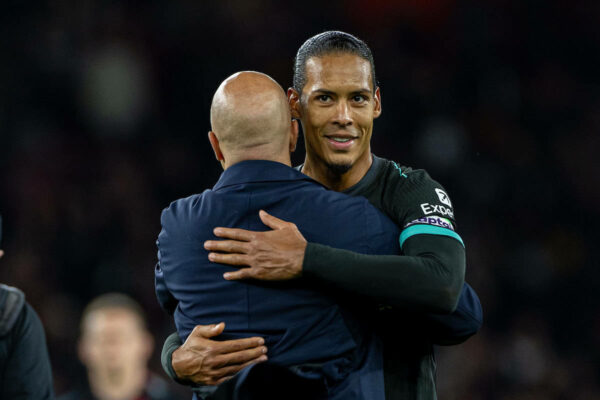
Again, whilst Van Dijk has always had the capacity to do these things, they aren’t the defining features of his more artful form of defending based on intelligent and calm reading of space and time.
To steal a Jurgen Klopp trope, the Dutch seek rock-and-roll defenders. Yet Van Dijk has always been more Mozart than Led Zeppelin.
A new generation
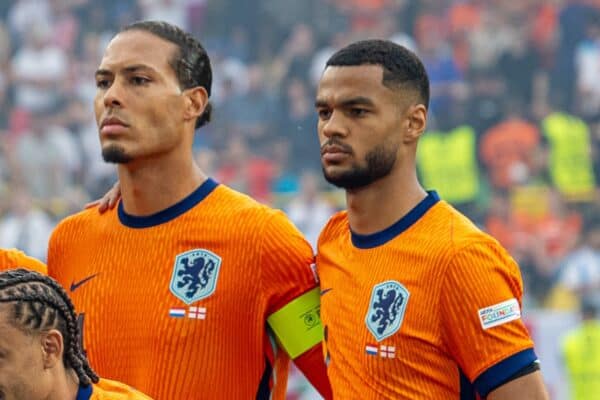
All great things come to an end eventually. And when it comes to a world-class player like Van Dijk, the hardest thing is knowing when to step away for pastures new, or for a coach to make the bold call to phase the individual out with the future in mind.
With the Netherlands, Van Dijk will be almost 35 come the next World Cup in 2026. Despite still playing at a good level for club and country, there has been a growing school of thought over several years now that it is time for a highly talented – and still relatively inexperienced – generation of centre-backs to be given their opportunity and regular game time at international level.
That the current Dutch pool of centre-backs is so deep means that any dip from their captain is quickly pounced upon.
Doubts rightly persist over the likes of Matthijs de Ligt, but the Oranje do have two highly talented – and naturally left-footed – players pushing for Van Dijk’s role in Micky van de Ven and Jorrel Hato, the latter touted as the next generational talent to come through the famed Ajax academy.
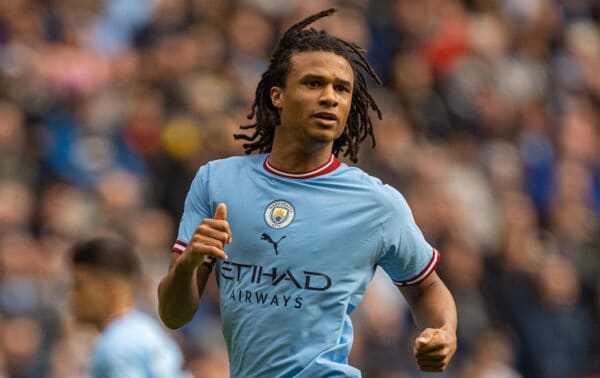
With more options now making their claim at left-back, Koeman could also begin playing Nathan Ake back in his natural role on the left side of central defence. The likes of Lutsharel Geertruida, Jan Paul van Hecke and the versatile Jurrien Timber could all arguably make a case for a more prominent role, as could Newcastle United’s Sven Botman once fully fit again.
Another getting talked up for a first cap is Sam Beukema, a vital player in the Bologna team that impressively qualified for the Champions League last season.
Unlike his Liverpool future, where Van Dijk is expected to sign a new contract, he has yet to give any indication of his international plans. One has to assume he is targeting what would only be a second World Cup.
For a player of his stature to have only appeared in football’s most prized tournament once is a travesty, but the spotlight on his form is more intense than ever before.
Has he left his international mark?
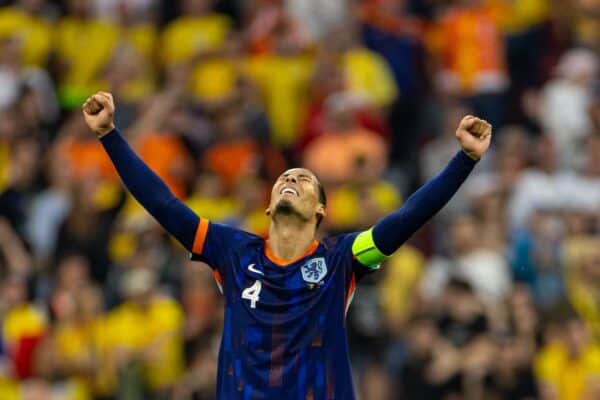
Fairly or not, elite players are held to elite standards. And, despite leading the Netherlands to the Euro 2024 semi-finals and a Nations League Final, a feeling also persists in his homeland that Van Dijk hasn’t truly stepped up to show his club form in international tournaments.
A slight based on his demeanour sometimes in interviews, or apparent lack of obvious vocality on the pitch, is that representing his country doesn’t mean as much.
Indeed, only in the last couple of weeks, Arne Slot has expressed his confusion in a press conference about the Dutch criticism of his No. 4 and his performances for his country, referencing how their captain never misses an international game despite the intense fixture schedule and fatigue.
Slot said: “How on earth you can criticise a player that’s played every game for us and played the Euros…that’s Dutch media!”
Numerous factors combine to ensure success in a tournament – luck being one of them – and there are arguably far greater limits to what a centre-half can do compared to forward players.
Despite his consistency, moments linger in the Dutch national consciousness, such as his penalty miss in the World Cup 2022 quarter-final against Argentina. Although he would never admit it, if Van Dijk were to retire from international football tomorrow, there would be a tinge of regret that he was not able to achieve more.
He didn’t play in either Euro 2016 or World Cup 2018 due to a failure to qualify, with him missing most of the latter’s qualifying campaign through injury. The injury curse struck again to rule him out of the delayed Euro 2020.

There is no guarantee that top-level players will impact international tournaments – just look at Erling Halaand and Norway. Yet, as one of the Netherlands’ few truly world-class players of the past decade, Van Dijk has frequently become the lightning rod for his country’s international disappointments in that period.
Perception is a funny thing in football. The international career of Virgil van Dijk has been far from a failure, even if it hasn’t mirrored the heights he has achieved in the domestic game.
With Koeman’s side now going through a period of transition, it will be interesting to see what happens to a player admired abroad but arguably never properly appreciated at home.
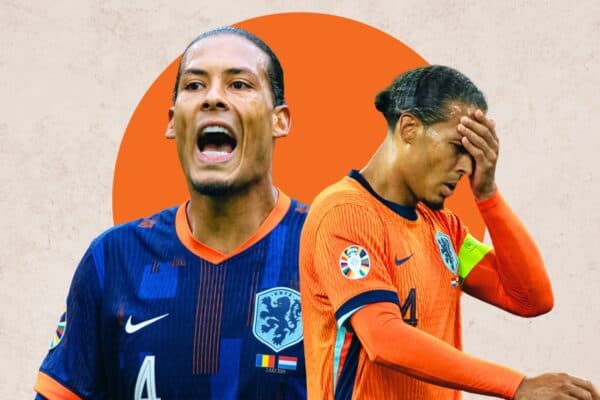




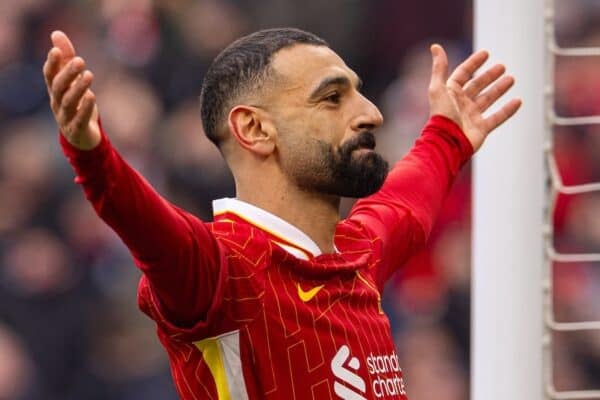

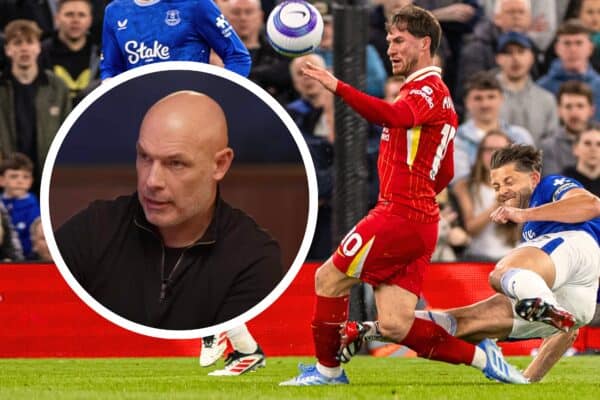
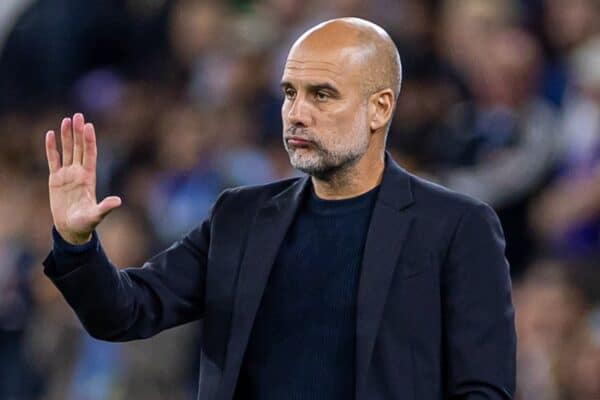
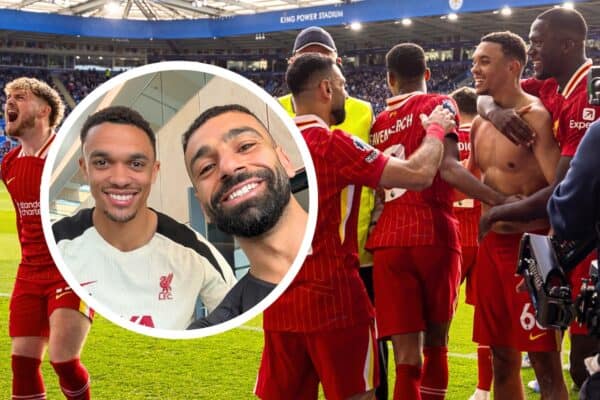

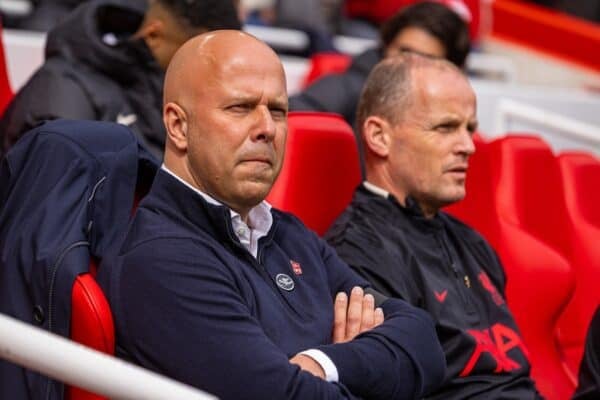






Fan Comments